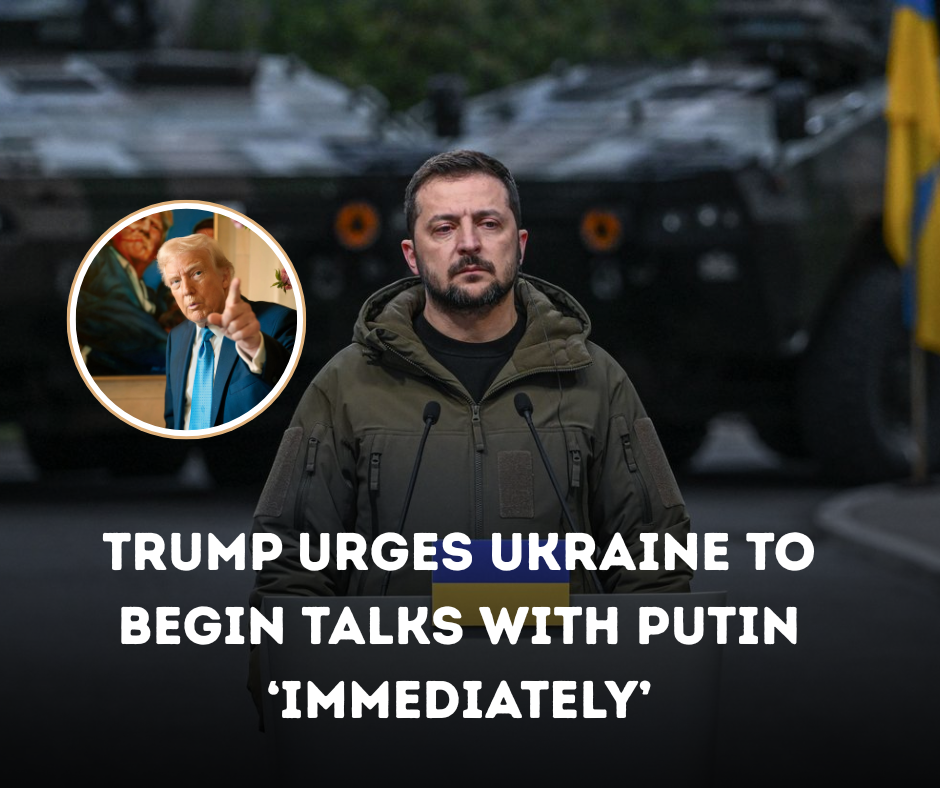President Donald Trump has publicly called on Ukraine to initiate direct peace talks with Russian President Vladimir Putin “immediately,” emphasizing his belief that negotiation is the only path toward ending the ongoing war. His remarks come amid continued fighting in Ukraine and growing international concern over the human and economic toll of the conflict.
A Direct Appeal for Diplomacy
Speaking in a recent interview, Trump urged Ukrainian leaders to consider a diplomatic route without delay. “They need to talk to Putin now,” he stated, suggesting that further delay could lead to even more devastation on both sides. Trump did not elaborate on specific terms he would support but stressed the urgency of getting both nations to the negotiating table.
The former president has consistently maintained that the war in Ukraine would not have occurred under his administration and that, if re-elected, he could end the conflict swiftly. While some view his comments as an oversimplification of a complex international crisis, others see them as a push for a long-overdue peace process.
Mixed Reactions from Global Leaders
Reactions to Trump’s statement have been mixed. Supporters agree that diplomacy is essential and believe that encouraging dialogue could help save lives and stabilize global markets. Critics, however, argue that urging Ukraine to negotiate now—while Russian forces still occupy parts of its territory—could be seen as pressuring Kyiv to make painful concessions.
Ukrainian officials have consistently said they are open to peace but only under conditions that respect the country’s sovereignty and territorial integrity. For many Ukrainians, any negotiations that reward aggression are simply unacceptable.
Why This Matters to Americans
For older Americans, especially those who follow world affairs closely or have ties to the military, Trump’s comments strike a chord. The Ukraine conflict has contributed to rising global energy costs, increased inflation, and heightened geopolitical tensions—all of which have downstream effects on the economy, retirement funds, and national security.
Trump’s position reflects a broader debate happening across the U.S. political landscape: Should the U.S. continue to support Ukraine militarily, or should it push for a ceasefire and negotiations—even if that means compromising on some of Ukraine’s goals?
Looking Ahead
As the 2024 election season heats up, Trump’s foreign policy views will likely continue to shape conversations around America’s role in the world. Whether or not Ukraine heeds his advice remains to be seen. But one thing is certain: the call for peace, in any form, is becoming louder as the war drags on with no clear end in sight.

Leave a Reply